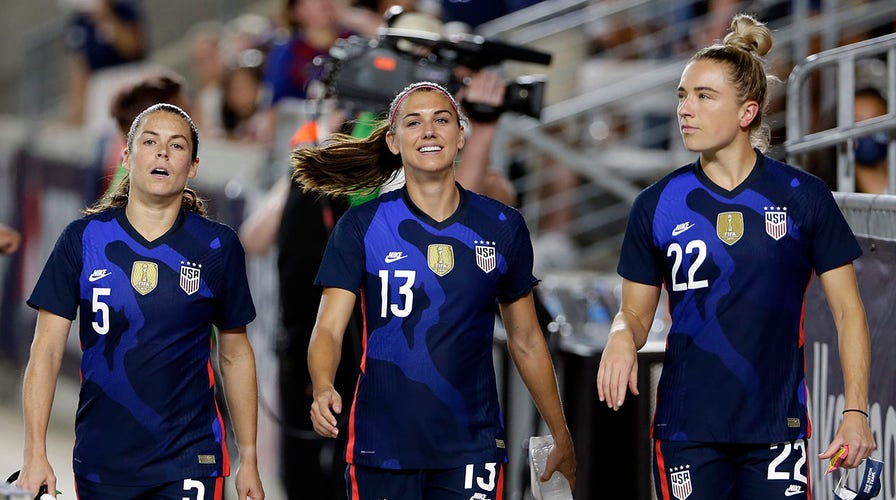Fox News Flash top headlines for September 15
Fox News Flash top headlines are here. Check out what's clicking on Foxnews.com.
Alex Morgan says the U.S. women's national team needs to make sure players aren't losing any of their existing compensation under the identical contract proposals the U.S. Soccer Federation has made to both the men's and women's teams.
But the team is hopeful for a new collective bargaining agreement that will address players' concerns about equitable pay, she said.
CLICK HERE FOR MORE SPORTS COVERAGE ON FOXNEWS.COM
"We still need to chat about the statement given by US Soccer. But any commitment to equal pay publicly is good," Morgan said Wednesday. "However, we need to look line by line at what they’re actually providing, because if you have equal but it’s not even what we got before, or to the value that we are, then we still consider that to be not good enough."
U.S. Soccer said Tuesday it offered identical contracts to the players’ associations for the men’s and women’s national teams. But the governing body also said it would refuse to agree to a deal in which World Cup prize money is not equalized.
The offers are the latest salvo by the federation to address the highly successful women team's demands for compensation equitable to what the men's team receives.
The unions for the men and women are separate and they have no obligation under federal labor law to bargain jointly or to agree to similar terms. The men’s contract expired in December 2018. The women’s agreement runs through this December.
"We don’t want to start the new year without a new CBA in effect, so that’s the number one priority of our PA, of our legal team," Morgan said. "Looking at the (USSF) statements it’s difficult to say, we want to feel encouraged and we want to be optimistic, but we have seen a lot of statements before. What we really want to do is see what we can do at the negotiation table, see those statements be put into action in those negotiations. So, of course we’re always hopeful, you have to continue to have hope."
The women's team is in Cleveland for a match Thursday night against Paraguay, the United States' first game since earning a bronze medal at the Tokyo Olympics in a disappointing finish for the Women's World Cup champions.
U.S. Soccer says it believes the best way forward is a single pay structure for both senior national teams. But the federation also maintained that some provisions currently in the women’s contract, like National Women’s Soccer League salaries and maternity leave and pay, would not necessarily be dropped from federation proposals.
The single pay structure would include revenue sharing.
"This proposal will ensure that USWNT and USMNT players remain among the highest-paid senior national team players in the world, while providing a revenue sharing structure that would allow all parties to begin anew and share collectively in the opportunity that combined investment in the future of U.S. Soccer will deliver over the course of a new CBA," the federation said in a statement.
Last week, the federation asked the men’s union to voluntarily equalize World Cup bonus money paid to the federation by FIFA.
FIFA awarded $400 million in prize money for the 32 teams at the 2018 men’s World Cup, including $38 million to champion France. It awarded $30 million for the 24 teams at the 2019 Women’s World Cup, including $4 million to the U.S. after the Americans won their second straight title.
Under their labor contract, U.S. men got $55,000 each for making the 2014 World Cup roster, then split $4.3 million for earning four points in the group stage and reaching the knockout stage. That calculated to just under $187,000 per player.
The U.S. women split $862,500 for making the roster and $2.53 million for winning the 2019 World Cup, which came to $147,500 per player.
CLICK HERE TO GET THE FOX NEWS APP
Women's team players led by Morgan sued the federation in March 2019, contending they have not been paid equitably under their collective bargaining agreement compared to what the men’s team receives under its agreement.
U.S. District Judge R. Gary Klausner in Los Angeles threw out the pay claim in May 2020, ruling the women rejected a pay-to-play structure similar to the one in the men’s agreement and instead accepted greater base salaries and benefits.
The women asked the 9th Circuit to overrule the trial court’s ruling. A three-judge panel is likely to hear oral arguments late this year or in early 2022.

